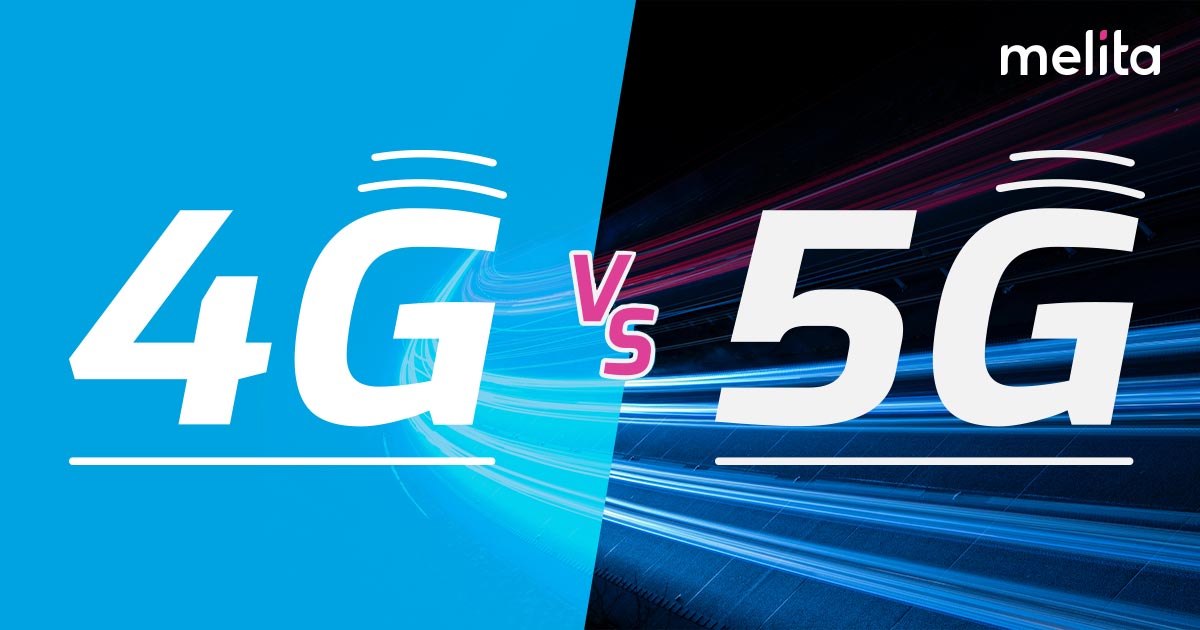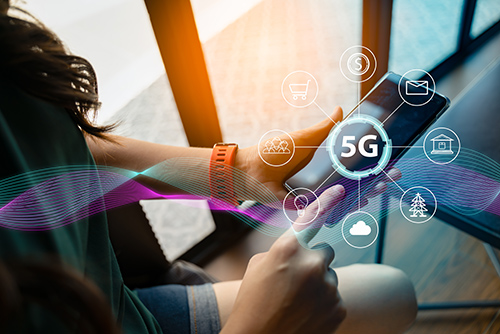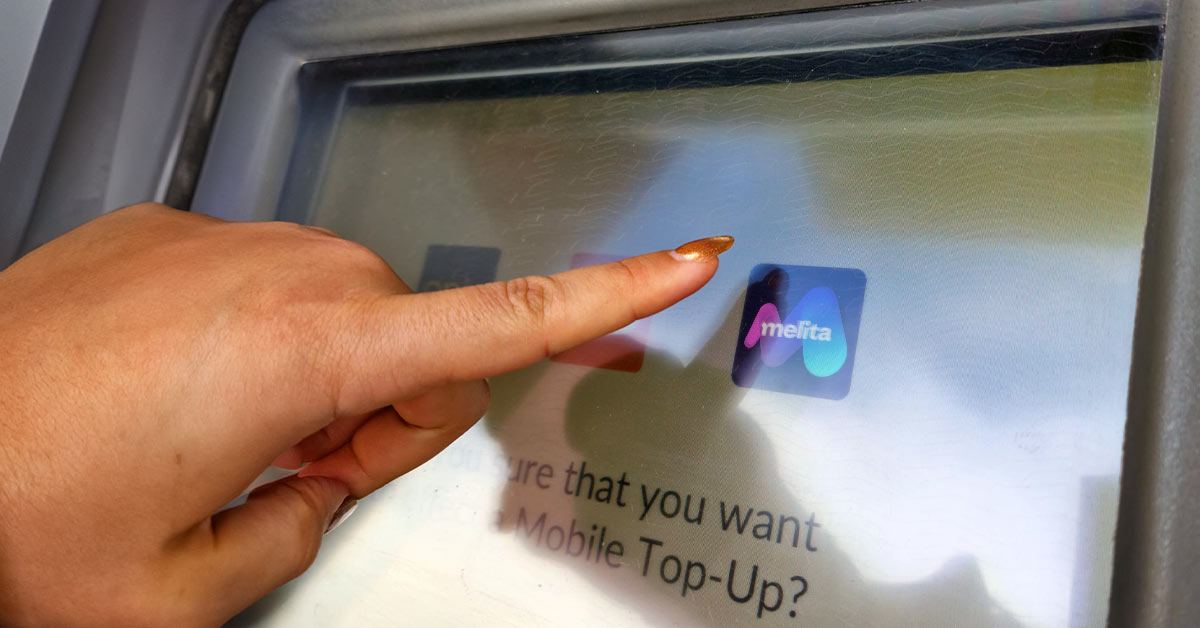
5G VS 4G: How Do Speeds Actually Compare
You may be wondering if it’s worth upgrading your 4G phone to a 5G phone. Like most great questions, there’s no simple answer to that one. It all comes down to your own personal needs, preferences, and priorities.
You might think that 5G typically costs more both for the phone and for the service, however 5G is provided by the telecommunication providers with no extra charge. Some phones provide 5G at no extra cost (e.g., an iPhone does not cost more only because of 5G function), whilst processing all the data 5G can provide requires the latest top-notch processors and chipset and that is why typically 5G capable devices seem to cost more when compared to 4G models.
5G also require new network equipments to be installed which is a cost for telco providers, but usually they don’t charge extra for 5G access. On the other hand, the speed advantage is beyond impressive.
How much faster is 5G compared to 4G? While the actual speed can vary with the quality of the connection (which we’ll go into more detail about later in the article), in general you can expect a speed improvement of around 10 times with 5G compared to 4G. When looking at the difference between 4G and 5G, speed is really the standout factor.
What is 5G?
5G is the new fifth generation standard for cellular telephone and internet services. The technology used in 5G networks is considerably different from that used in 4G and previous generations.
This new technology offers speed and connectivity advantages. While it’s not always possible to connect at full 5G speeds with a 5G phone due to some issues we’ll describe at the end of this article, you’ll always be able to connect because 5G phones and tablets are able to fall back to any lower generation of network.
The opposite is not true, however. 4G (or earlier generation) phones are not able to access 5G because the technology is too different.
Another thing to know about 5G is that it doesn’t come as a “one size fits all” solution. It’s available in different modes. In Europe, most 5G networks will use millimeter wave technology accessing the EHF band above 24GHz, technically known as Frequency Range 2, or simply FR2. If you’re traveling internationally, this could have some effect on your connection in areas that only use FR1 (frequencies below 24GHz). The same is also true if you buy a phone or tablet from outside the European Economic Area. In that case, the product may not necessarily be FR2 compatible.
What is 4G?
4G is the fourth-generation standard for cellular telephone and internet services. It offers very good speed advantages compared to earlier generations of the technology but lags behind 5G by a large margin. On the other hand, 4G is currently still the most used communications technology in 2022, and that means you can be reasonably confident of good connectivity almost anywhere in the world, but with a certain caveat.
That caveat is that with 4G it becomes even more important to understand the technological capabilities of your phone and your SIM than with 5G. This is because there are only certain phones and networks that can reliably roam in all regions of the world. Others might be restricted to only two of the three ITU regions, or possibly only one region.
Most of the world uses a 4G standard known as GSM. If you live in Europe, you almost certainly have a GSM compatible phone. In the US, Japan, and South Korea, the 4G networks use a different technology called CDMA. To ensure you can connect to any network, your 4G phone hardware needs to be at least tri-band or preferably quad-band (this information should be printed on the packaging or user manual that came with your phone). Also, your service provider will need to support both CDMA and GSM, unless you have no intention of traveling to one of the three CDMA countries. You could also try using a local SIM card from the country you’re traveling in, but this requires your phone must not be locked to any particular network.
What is the Speed Difference?
How fast is 5G compared to 4G? In advertising, 5G service providers offer “up to 10 times speed increases” with 5G, but how will you know exactly how much of a difference that really makes in practical terms? Worry not, because we’ve constructed a handy comparison table to help you see at a glance how much 5G can be expected to boost your download times compared to 4G.
5G Vs 4G comparison Table
| File size | 5G | 4G |
|---|---|---|
| 150 GB | 00:21:28 | 04:28:26 |
| 100 GB | 00:14:18 | 02:58:57 |
| 75 GB | 00:10:44 | 02:113 |
| 50 GB | 00:07:09 | 01:29:28 |
| 25 GB | 00:03:34 | 00:44:44 |
| 15 GB | 00:02:08 | 00:26:56 |
| 10 GB | 00:01:25 | 00:17:53 |
| 5 GB | 00:00:42 | 00:08:56 |
| 1 GB | 00:00:08 | 00:01:47 |
Why 5G does not mean automatically better coverage Vs 4G?
5G is built on mmWaves. It is a new section of very high frequency spectrum upwards from 20 GHz all the way to 96 GHz. The catch is the higher the frequency of any wave the lesser the range that is why 5G doesn’t travel as well in the real world. Even if you stand close to the node it mostly travels well within direct line of sight. Things like trees, walls and buildings block the high frequency signal, even if you are still close to it.
When will 5G become available?
It already is available in many countries and cities around the world, and the list is continually growing. In Malta, 5G is available from Melita. For more information, please visit https://melita.com/mobile/discover-5g/
Advantages of the 5G Network
5G can offer many advantages, including:
- Reduced latency. In terms of data transfer, latency is what happens when the connection seemingly stops temporarily. It happens when the continuous data flow is seemingly halted until the requested query (to access a certain URL, website, database or to react to the push of the button on a gamepad) gets a response from the servers. This effect is more popularly known as “lag”, an effect dreaded by gamers and live-streamers everywhere.
- Higher bandwidth. You can transfer more data more quickly with 5G.
- Improved energy efficiency. Because data transfers are faster, that means your 5G phone doesn’t have to work as hard as a 4G phone would have to do in order to receive the same content. This will do wonders for battery life.
- Dramatic improvement in P2P communications. 5G devices can perform blazingly fast peer-to-peer data transfers, eliminating the need for a server to act as the middleman in a transfer.
Why 5G is going to be revolutionary
The history of 5G is just getting started, and the full potential of it is not yet realized. As more people make the jump from 4G to 5G, we can expect to see technological advances occurring in parallel to network growth. Where the most benefit will be seen is:
- Gaming. You’ll be able to stream games live to your device without needing to download anything to your storage. That will save space on the device and provide you with a wider choice of games to play.
- Traffic management. With 5G technology it is possible to connect to traffic management networks that can provide vehicle-to-vehicle communications in real-time. This means vehicles will be able to detect each other, and function as a kind of TCAS or early warning radar for cars. Network servers will also be able to capture and transmit important information such as traffic jams and roadworks, enabling you to avoid delays and hazards on your commute.
- Virtual Reality. We can already do this with 4G technology, but the experience is far from perfect. 4G just doesn’t have the speed to produce a beautiful lag-free VR experience. 5G with its improved speed and lower latency will offer truly immersive VR on mobile devices.
- IoT growth. The “Internet of Things”, or IoT, offers an abundance of incredible new life-enhancing technologies to become available. It’s already massive, but with 5G technology it can grow even more. Again, it’s those higher speeds and lower latency that increase the possibilities. Sensors won’t require any fixed connection (not even for powering the communication module) which will extend the possibilities on an exponential level.







